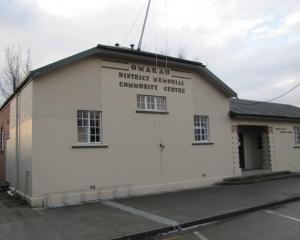
At hearings for the council’s proposed regional policy statement, Christchurch International Airport Ltd argued for a "forward-looking" planning document that left the door open for a new airport in the region.
Opponents argued the door was already open for such a development, but the airport company was looking for an easier way to get what it wanted.
Airport counsel Jo Appleyard said the company was concerned that as far as airports were concerned, "regionally significant infrastructure" in Otago only referred to airports that already existed.
Airports were included as regionally significant infrastructure in the proposed policy statement, but there was an "exhaustive" list - Dunedin, Queenstown, Wanaka, Alexandra, Balclutha, Cromwell, Oamaru and Taieri.
The planning document "with a decade-long vision" should be forward-looking, recognising the future needs of the region, Ms Appleyard said.
In 2020, Christchurch International Airport Ltd spent $45 million on 750ha of land near Tarras, at the confluence of the Hawea, Lindis and Cromwell valleys, to potentially build a new airport.
In submissions to the council hearings, the company said the airport’s catchment area of Central Otago and Queenstown Lakes districts was the second-fastest growing region in New Zealand.
Because of the area’s "geographic remoteness", demand for air travel among residents was high and growing at a significant rate.
The average Central Otago resident took around 45% more domestic trips and 20% more international trips a year than the average New Zealander.
Visitors that arrived in Central Otago by air made up 40% of all visitor spending, which was $1.55 billion in 2019.
The regional council’s view on regionally significant infrastructure was "stuck in time", with no recognition there would be a need for additional airport infrastructure in the foreseeable future, Ms Appleyard said.
Christchurch International Airport Ltd planning and sustainability project lead Rhys Boswell said the position the council planning document appeared to be taking on airports was in stark contrast to the more "enabling approach" it took with other regionally significant infrastructure.
Wine producers and fruit and vegetable growers relied on travellers for their seasonal workforce.
The wine industry also relied on visitors, and around 22% of international tourists went to a winery when visiting.
Exporters of premium produce, such as stone fruit, relied on air freight to get their products to overseas markets.
Growing sectors like screen production, technology and education relied on air travel too.
"Efficient air connectivity will help enable these and other sectors of the Central Otago economy to grow and thrive, providing employment opportunities for current and future generations," he said.
On the other hand, Sustainable Tarras Inc society representative Duncan Kenderdine said the present definition of regionally significant infrastructure captured infrastructure with "a functional need and operational need to be in a particular location" or a historical reason for being there.
Regionally significant infrastructure included "lifeline" infrastructure such as roads, electricity, telecommunications and water assets.
"For the newly proposed airport in Central Otago, or other parts of Otago for that matter, neither a functional need, nor an operational need, in the proposed location is apparent or demonstrated.
"It is unnecessary, ad hoc and draws attention away from maximising existing infrastructure within the broader region," Mr Kenderdine said.
Sustainable Tarras counsel Morgan Slyfield said the hearings panel was being asked by the airport company to decide a new airport was likely to be needed in the region within the life of the regional policy statement.
Under the present proposed regional policy statement, an airport company could seek consent for an airport, but as a first priority it should avoid areas with outstanding nature or significance.













